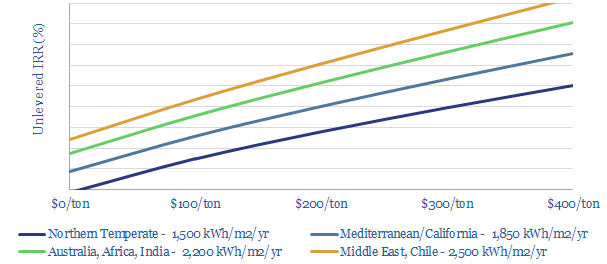This is a simple model calculating the economics of typical rooftop solar water heaters, which can save around 1T of CO2 per household per year and lower water heating bills by 50-80%.
Economics are more challenging, due to high upfront capital costs, which are quantified in the data-file. Other important factors are location (determines the average annual insolation) and price of electrical/gas power (determining how competitive solar water heaters are with other heating methods).
Under our base case estimates, it would require a CO2 price of around $130/ton, to incentivize rooftop solar water heaters based on global average insolation and gas prices. In contrast, our best estimate is that solar and wind can reach 40% of the global grid for a $60/ton average CO2 abatement cost, while raising electricity prices from 10c/kWh to 12c/kWh.
The world had 542 GW of solar water heating capacity installed in 2022, according to Statista, with the majority of it installed in China. Though we do not consider solar heating to be a big component of our route to net zero, it can prove to be an interesting and efficient way to reduce carbon emissions of households in economies with carbon taxing. First and foremost in countries with high insolation.
